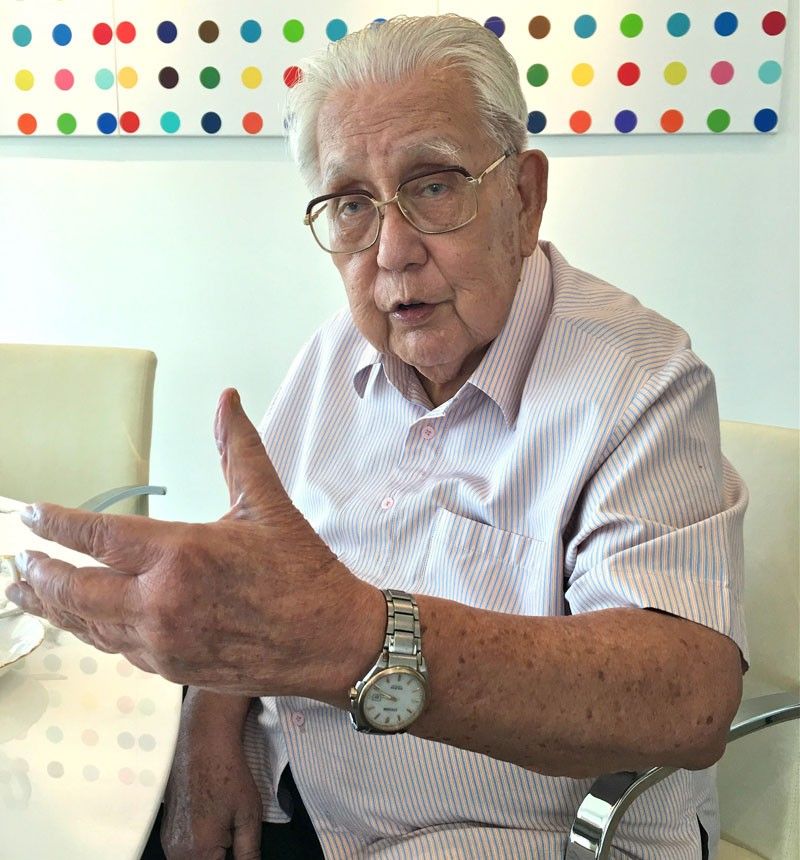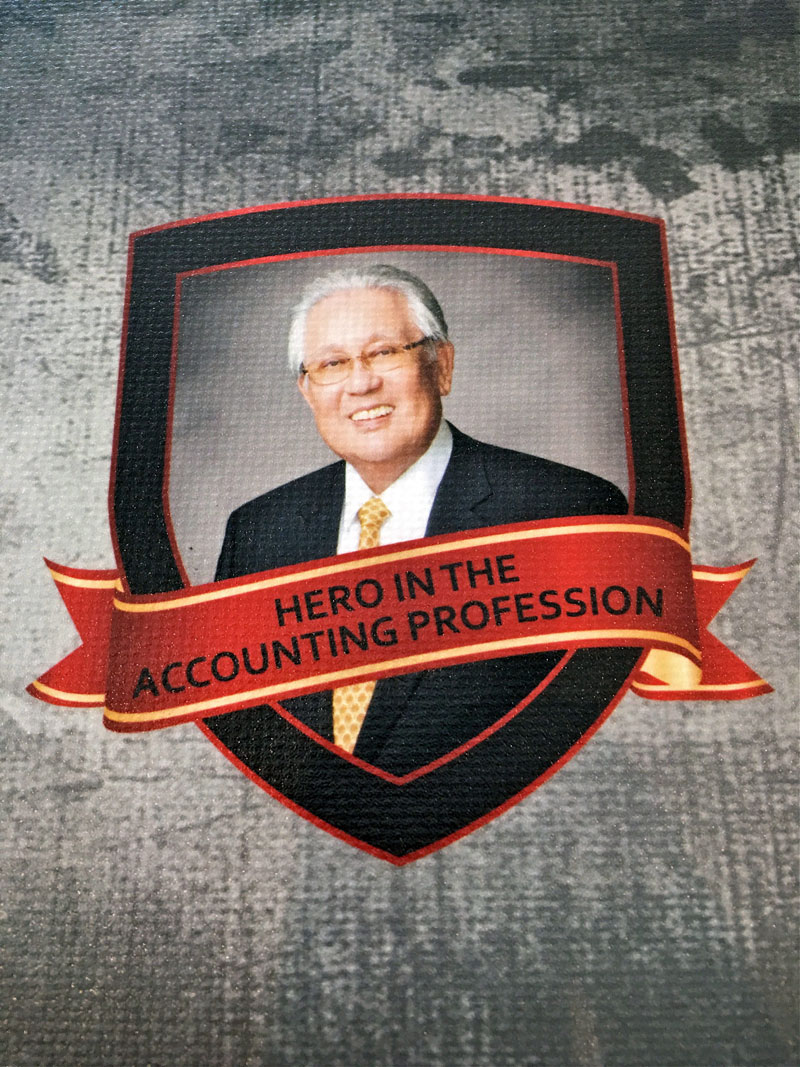Meeting Pak Utomo, a legend in Jakarta


The expectation proved correct. In the flesh, Utomo Josodirdjo would be larger then life, going by all the accounts I had read about him.
A legendary figure in Jakarta, where he had pioneered in progressive accounting practices in the 1960s, he had developed an entire corps of partners, managing partners and successors.
In 1968, Washington Sycip became impressed with the younger Utomo during a business conference in Jakarta, and invited him to Manila. His fledgeling company wound up joining the SGV Group, with SGV-Utomo soon turning out to become the largest and most profitable accounting firm in Indonesia.
When he retired in 1989, the SGV Groups’ Executive Committee funded the Utomo Josodirdjo Chair in Business Ethics at the Asian Institute of Management in recognition of Utomo’s contribution to the growth of the SGV Group.
He continued to wield a strong influence on the profession, and remained highly respected internationally. When he turned 80 nearly a decade ago, his myriad of friends secretly collaborated in putting their recollections together and publishing Utomo Unveiled: A Portrait in Verse, to present to him in tribute.
Several lifetime friends from Manila, some of whom had worked with him in Jakarta to help out in his firm’s initial operations as SGV-Utomo, contributed their own fond memories.
Among these were Alfredo M. Velayo, Celia Samson, Crisostomo Caro, Dominador V. Gregorio, Edith J. Caro, Erlinda T. Villanueva, Jose E. Cedo, Porfirio M. Flores, Rizalino S. Navarro, and Wash Sycip, who also wrote the Prologue.
As head of the Project Bookindo Committee, Prijohandojo Krisanto, who had joined Utomo’s company when he was only 24, wrote the Foreword. The 501-page book with photo folios was edited by Puri Warren-Gonzalez.
In January 2018, John A. Prasetio, who had been handpicked by Utomo to succeed him, put out another book, mostly of photographs, to honor Utomo as a “Hero in the Accounting Profession.” That same year, Utomo’s 88th birthday celebration was held at Makati Sports Club.
Since he’s entering his ninth decade on Jan. 1 next year, it was decided to have a full-blown bio written and published in time for the milestone. And that’s what had me spending four days in Jakarta last week, to converse initially with the subject of the biography, who also hosted my stay in his large compound in Kemang in the southern part of the bustling city.

The cover of the latest book tribute to the man generations call their “second father.”
Besides being larger than life at a bulky 6-foot-1, he retained the booming voice that had characterized him as an intimidating boss in his younger years. His English was good, since he took it up, along with German and French, when he was in secondary school run by the Dutch before the Japanese occupation. But he had better mastery of Dutch, which had been honed in his eight years of university schooling in Rotterdam.
I enjoyed our interview sessions at his home. They were attended by conviviality and humor. Modesty and humility also marked his own recollections of how he had striven to change the mindset of the then low number of accountants in his country. Repeatedly did he acknowledge his gratitude to the many Filipinos who had come over to help train his staff, and above all, the great debt he owed the man he called his own mentor, Wash Sycip.
He shared his own principles of honesty, independence, and a sense of fairness, without with he said no individual or business can hope to do well. But while constantly having me served pisang goreng (fried banana) and other sweets for merienda while we conversed, he also repeated another mantra: that one must live to eat.
Thus did I enjoy my fave beef rendang and other local dishes for dinner with his son-in-law Daniel Budiman and grandson Tobias, who were the only family with him last week, his two daughters and other grandkids being abroad.
He took me to meet with his closest former junior partners — “Prijo,” “Surya” or Surjadinata Simantri, Rusdy Daryono, and Leonard Tanubrata, who had studied at AIM for a couple of years. They all consider him as their second father, and call him Pak (pronounced as “Pa”) Utomo, as an honorific like “Sir.”
We also met with Ambassador John Prasetio, whom Pak Utomo suggested I also interview, then with Suryanti Daryono, Hari Purwantono, and Ruddy Koesnadi, the last to speak on Pak Utomo’s involvement with World Vision, which had been passed on to him.
All of these individuals were respectful and so evidently loving of their former mentor who had set them off to become the CEOs and CFOs they are at present. He was the virtual Yoda who had selected them in their youth, and trained them like Marines until they became his fellow Jedi knights who had imbibed his admirable caliber of professionalism. The only time they disputed him with a laugh was when he said as an aside that he was very proud of them, especially since they had all become so much wealthier than him.
Apart from those meetings and interviews, I thoroughly enjoyed the variety of meals we had at restos close to his place, which he had already cased — from European to Malaysian, Japanese, and finally an American steak dinner.
Burping through it all, I felt supremely honored and privileged to have been awarded the opportunity to write the biography of a legendary man in time for his 90th birthday.



















